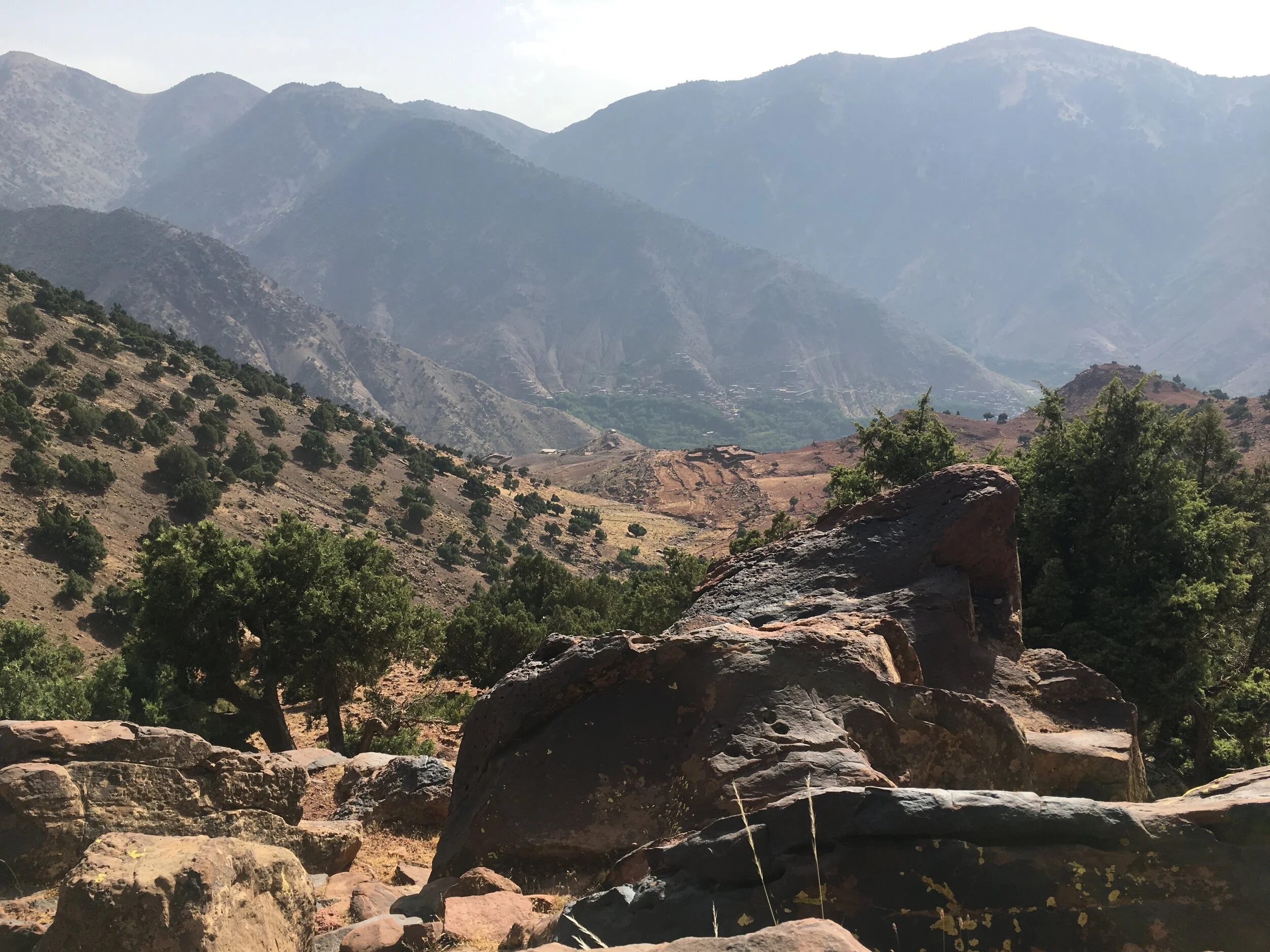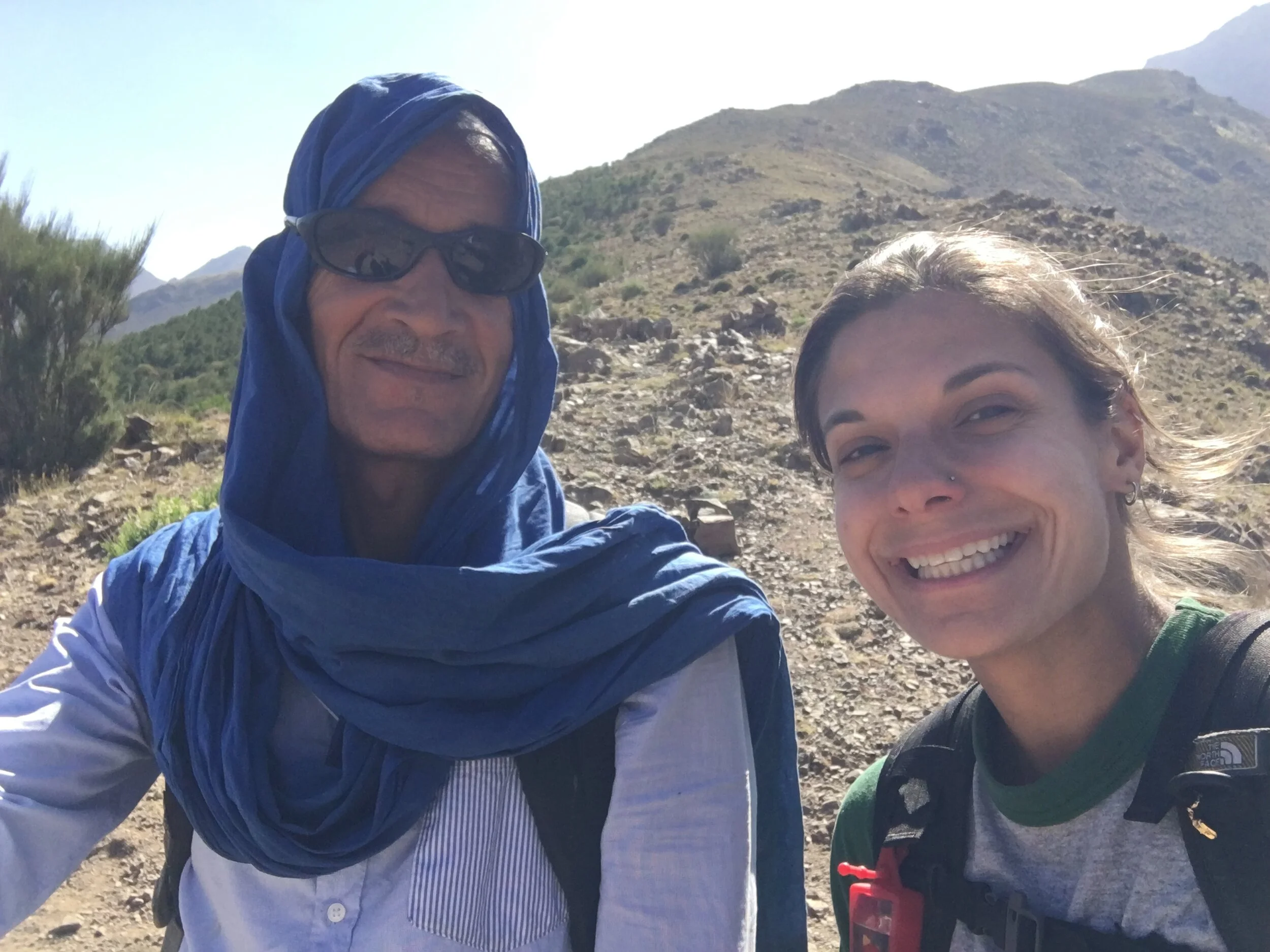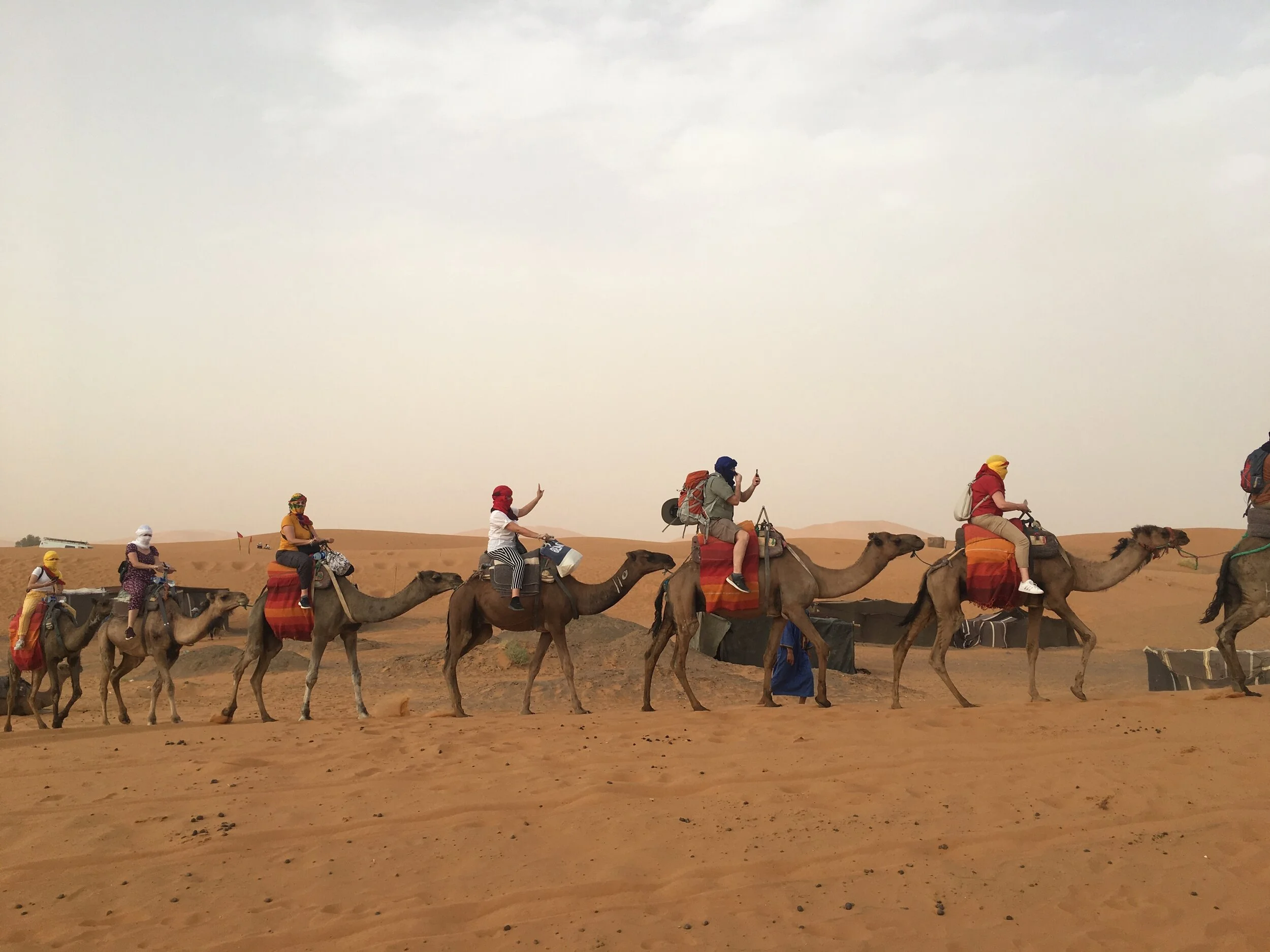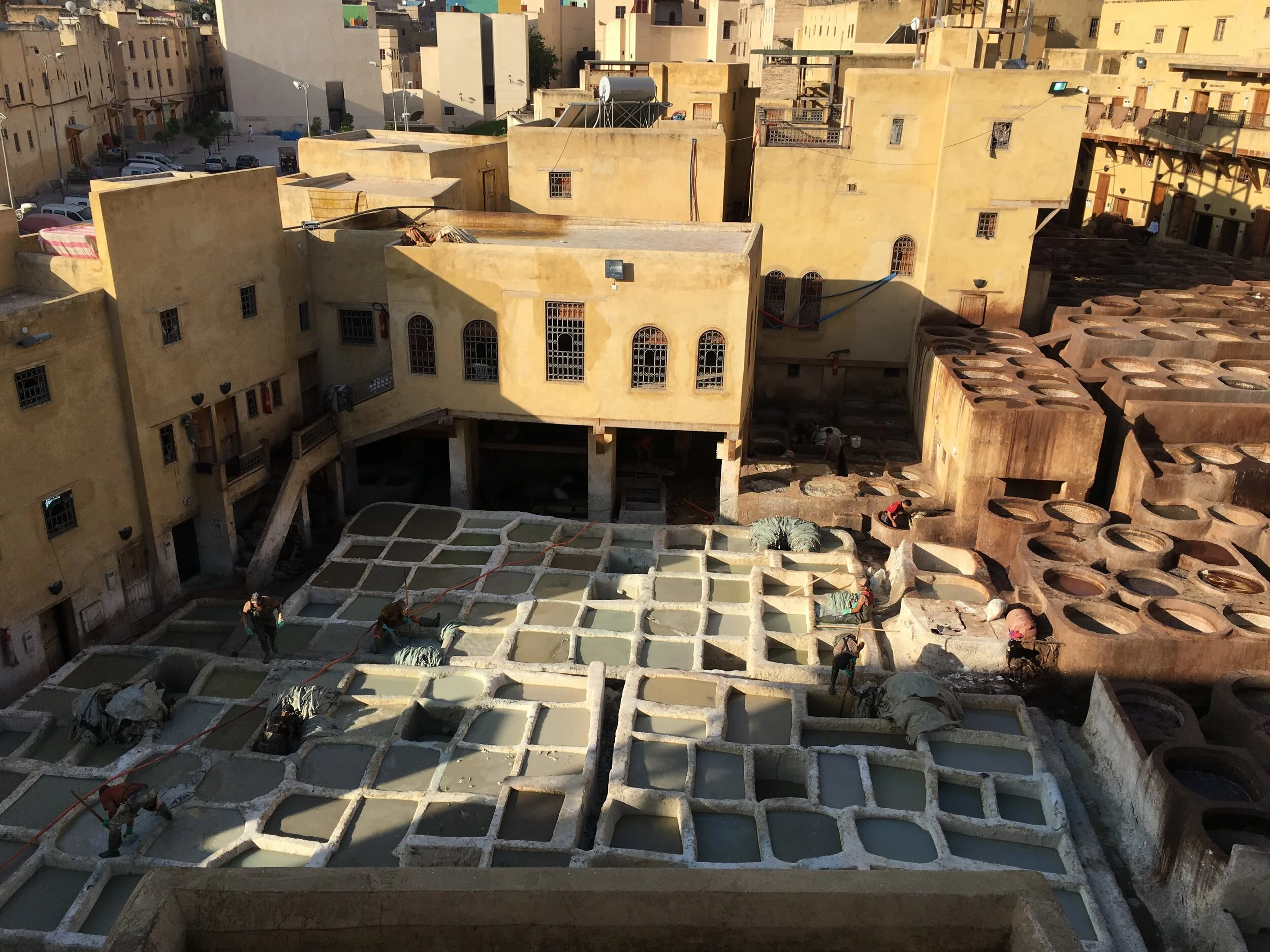The High Atlas Mountains
Abdil has a well-trained mule who wears a blue tarp outlined in yellow and orange embroidery that goes under his tail and neck. On top of the tarp Abdil puts woven panniers and in the panniers he puts a stove and tank of propane, a picnic blanket woven from sheep’s wool, plates, cutlery, two teapots, silver platters of various sizes, pots and pans, his own personal effects and any of our things we wanted to be without until the end of the day.
Abdil’s mule grazes on the path while we eat lunch.
Abdil doesn’t speak English and defers to our guide, Ali, for everything more than an indication that we’re finished eating. He has holes in both sides of both of his sneakers. He wears a green baseball cap and does the dishes in the river. I’m on a three-day hiking expedition in the High Atlas Mountains and I’ve never had a cook with a mule before. He makes lentils, tajines, and beautiful salads out of seemingly nothing.
Abdil packs everything he needs to cook in the green panniers that sit on the mule’s back. Sometimes he sits on the mule’s back too.
We start our expedition after lunch. Morocco is a country of late starts. As one shop keeper told us, “Europeans have watches but Africans have time.” It’s easy to forget one is in Africa while walking in Morocco. I saw dung beetles in clusters turning mule excrement into dirt this morning. I thought to myself about how I had seen the same large, shiny black insects “when I was in Africa.” I had to catch myself. Tanzania is Africa, but so is the Magreb. Morroco is every bit as African as Subsaharan Africa is African.
Abdil washes dishes in the river in his signature green baseball cap.
Abdil finishes the dishes and we head out as he packs the mule. Even with our head start he’ll easily pass us in less than an hour. All while we were picnicking under a tree near the river women were crossing the water in groups of 3 or 5 and continuing past the mule up into the hills. Some carried babies. Most carried nothing. All were covered head to toe in the long dress with long sleeves that marks many a Muslim woman. They wear leggings under the dress and cover their hair in long scarves. Some have hoods, all look hot in the heat. They shuffle along in flip flops or loafers, in stockings or barefoot.
We ate our lunches on this sheep’s wool blanket that doubled as Abdil’s prayer rug.
They are walking to a funeral. Last week a 20-year-old man was swimming in the river with his friends near the dam. He drowned and his body was taking to a hospital in Marrakech. They just gave his body back to the family and now everyone from the surrounding villages will pay their respects before burying the body. Our guide tells us the caravan of walking women is something of a party as they chat and gossip spreading the village news. Ali says they’ll put on their sad faces and start crying once they arrive. One women jokes with Ali and asks if we (the three America and two Belgian hikers) want to come to the funeral. He retorts saying we’ll go to the funeral if they’ll walk over the mountains with us. The offer is rescinded.
Abdil lead his mule for two days across the Atlas Mountains to cook for us. He left the second night and we packed our own lunches on day 3.
We’re walking on a mostly paved road up from the valley into the hills. When we get to a turn off, a big white car is letting out some of the village men to go to the funeral. Ali knows the driver and sends his respects to the family. It seems unfair that the men get to ride while the women walk but I don’t say anything. Instead I ask about the prevalence of cars and motorbikes. Ali says a new Japanese motorbike (the preferred country of origin) will set back an owner 8000 to 13000 Moroccan Diram, roughly $800-$13,000 which isn’t a small sum in a country where the per person income averages $8,000.
Cars are more rare than motorbikes which are more rare than mules. Most people walk. The Berber people are the hill people and they are the oldest ethnic group in the world dating back to 10,000 BC. Many Berber, or Amazighs as they often call themselves, live much the same way their ancestors did: heading sheep, growing food, and ascribing to whatever religion is popular with the ruling class of Morocco. Over the ages they’ve been animist, atheist, worshiped the gods of Egypt, Hellenistic Greece, the Jews, the Christians and now the Suni Muslims. At night on our guesthouse terrace, I see Abdil praying on the carpet we used as a picnic blanket, folded into a prayer run, facing Mecca.








